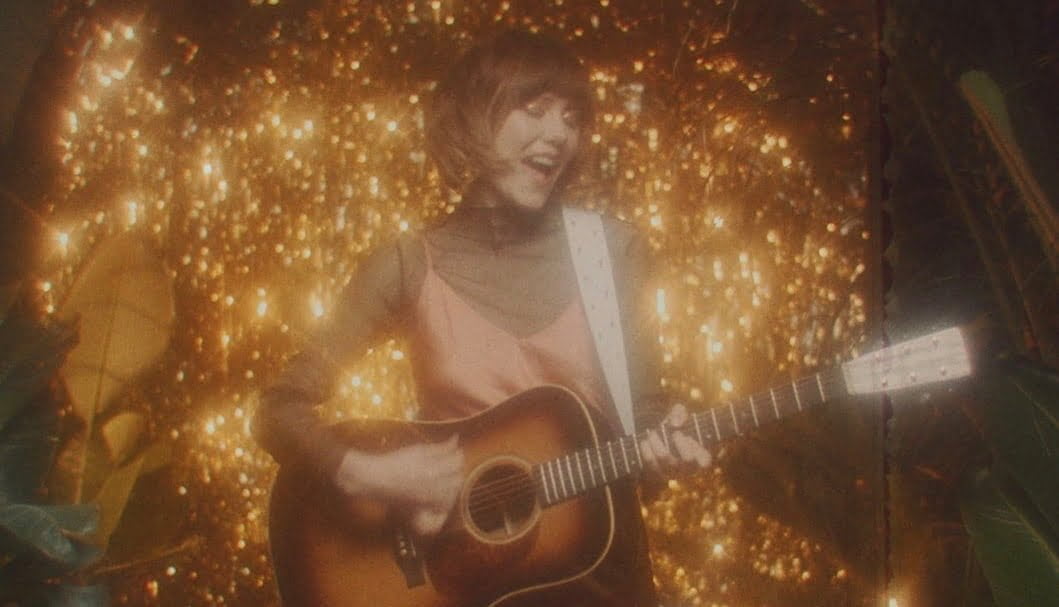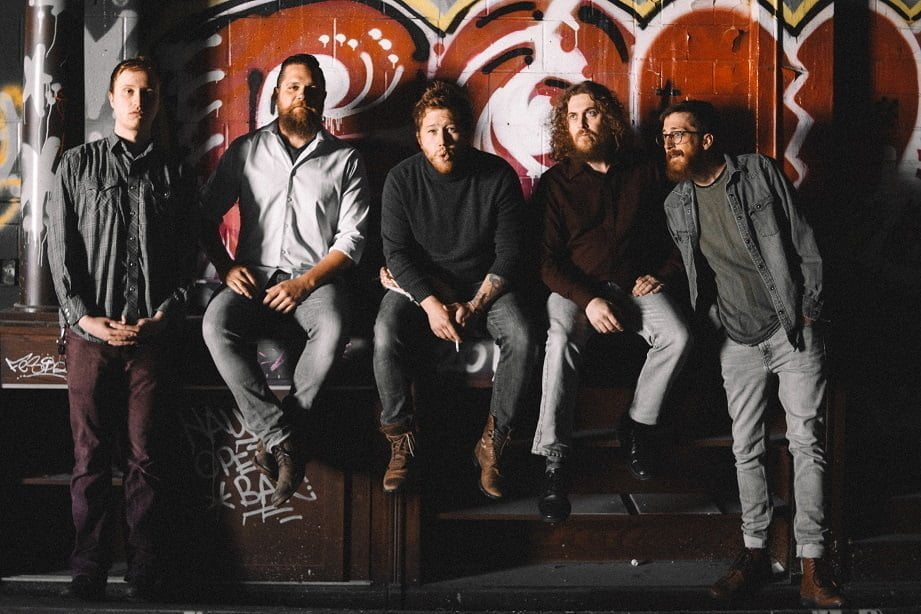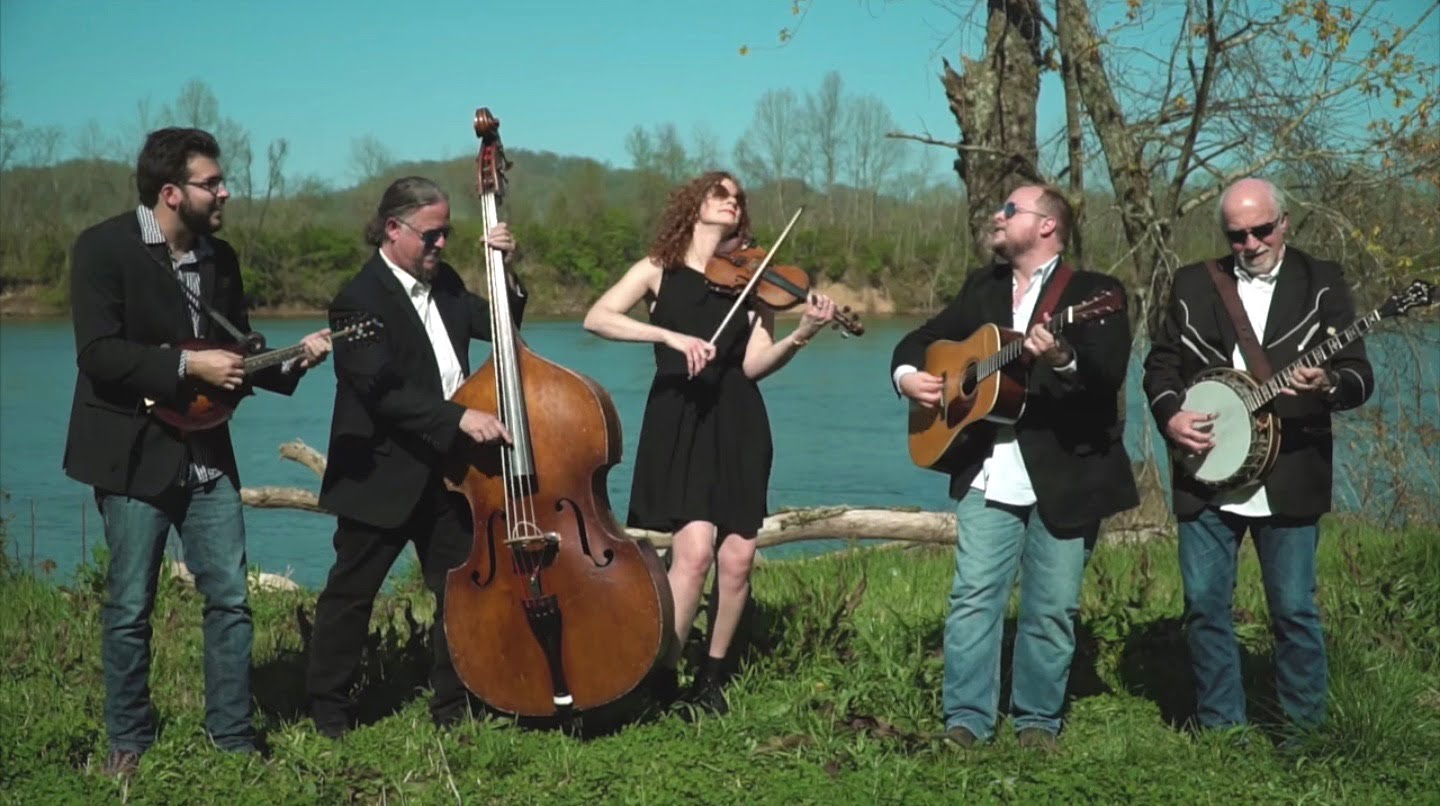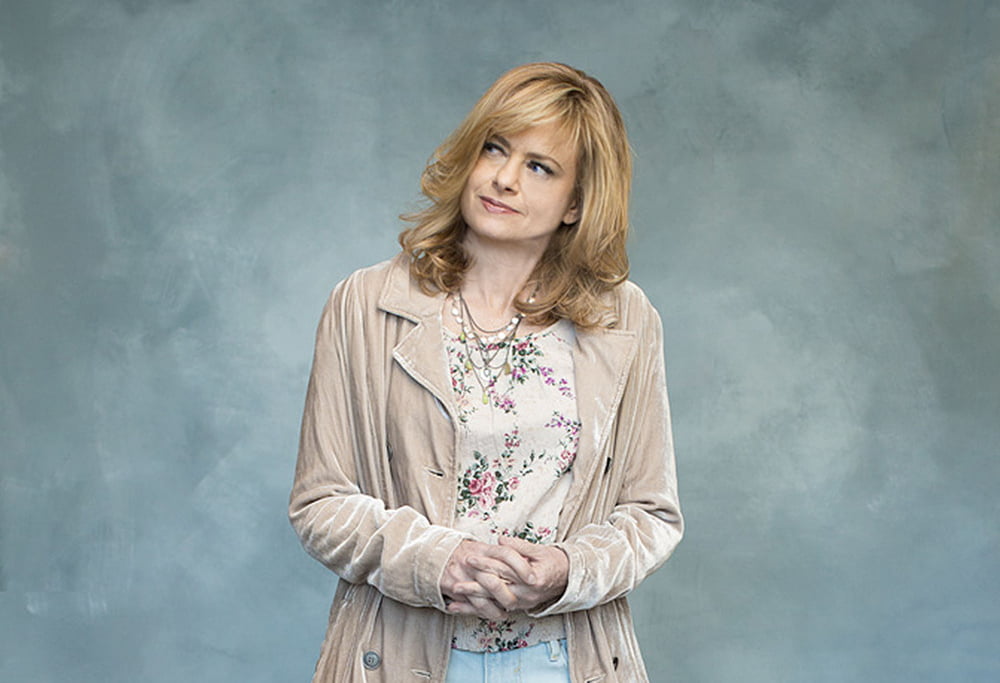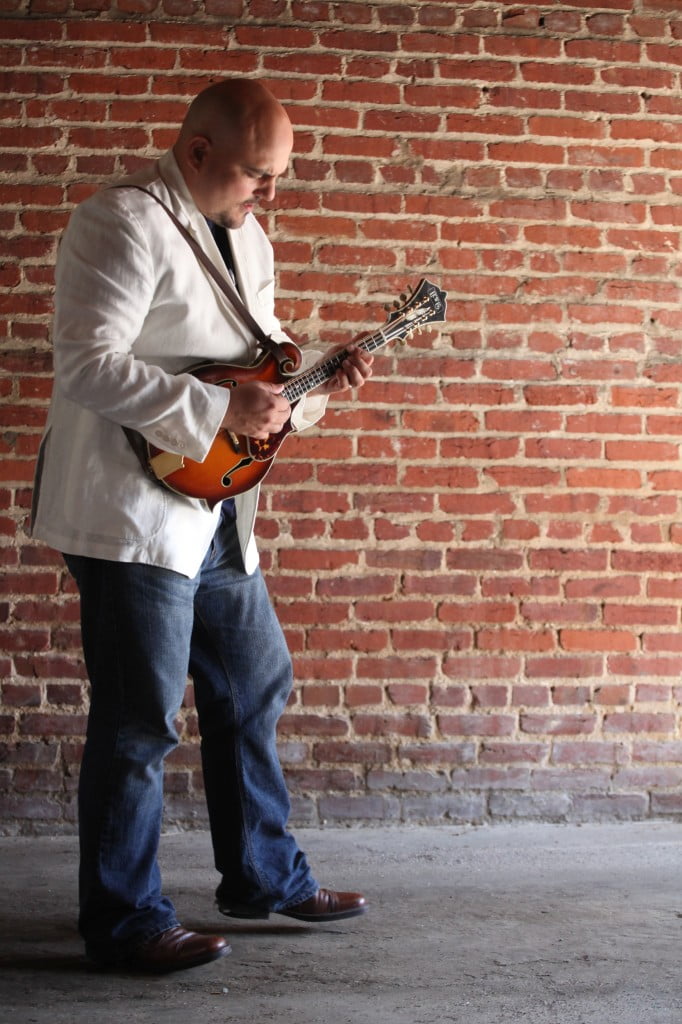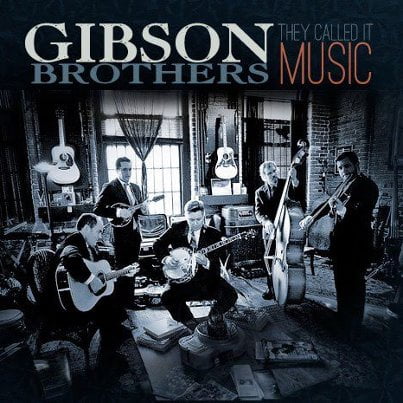Forget, just for a moment or two, the fact that Alison Brown is one of the best banjo players alive. Put aside that she’s been playing all her life and has released 11 solo albums and many, many more with various duos and groups. Never mind that she left a lucrative career at Smith Barney to co-found Compass Records and has been honored by the International Bluegrass Music Association with a Distinguished Achievement Award.
Instead, let’s think about Alison Brown strictly as a producer. She has quietly established herself as a creative force on “the other side of the glass,” as she says, forging a style that is precise yet imaginative, grounded in tradition yet anchored in the artist’s own distinctive personality and style. In the last 10 years, she has produced albums by some of the best musicians in bluegrass — young and old alike — starting with Dale Ann Bradley’s Catch Tomorrow in 2006 and following it up with projects by Peter Rowan, the Special Consensus, Susan Greenbaum, Claire Lynch, and — most recently — Quiles & Cloud.
This year she is nominated for two IBMAs — Instrumental Recorded Performance of the Year and Recorded Event of the Year — for her work on the Special Consensus’s “Fireball,” from their recent Brown-helmed album, Long I Ride. A wildly inventive and rambunctiously paced bluegrass jam featuring twin banjos and twin mandolins, the song threatens to fly off the rail with every note, but somehow she and the band manage to keep it all on track.
How did you move from being an artist in the studio to being a producer?
It happened very organically. When we moved home for Compass Records, we bought the Glaser brothers’ former office space. The Glaser brothers were, of course, part of the outlaw movement in country music and they had a legacy studio that was known to the press as Hillbilly Central. It’s where part of the first platinum-selling record in country music was cut and a lot of others, like Waylon Jennings’ Dreaming My Dreams and John Hartford’s Aereo Plain.
All of a sudden, we had this office space that had this legacy studio in it. I think the first record I produced was for Dale Ann Bradley, who is an amazing bluegrass artist from Kentucky, and she just asked if I could do it. I had never really thought too much about producing. I’d always had someone else produce my records, but I agreed to do it. In the process, I really learned that I had learned a lot on the other side of the glass that I could share with somebody else. It was a result of having that space and then realizing that I knew more about the process than I thought I did.
So you’re running Compass out of that building, along with the studio?
Conceptually, it’s the perfect example of vertical integration. The studio is upstairs, and most of the offices are downstairs, except for my office and Garry West’s office. We co-founded the label together. There’s this idea that we could record a track from 10 in the morning to one in the morning, and it could be mixed and up for sale on iTunes by the end of the business day. We can really do the whole thing, starting off with pre-production through getting the record off to mastering. We’ve got someone doing package design. We’re doing publicity, promotions, social media, marketing … with the team downstairs. So it is a soup-to-nuts operation.
What do you remember from those first sessions you produced for Dale Ann Bradley?
I guess I remember two things. First of all, in part, I feel a producer’s job is to make the artist — and, in this case, it was her band, too — as comfortable in the space and as able to do their best work. For people who aren’t used to being in the studio, it can be hard being under the microscope, especially if you’re not doing that every day. I think that’s there’s an aspect of psychology to the job: figuring out what everybody’s fears are, their point of discomfort, what they’re most nervous about having to do, and trying not to put them in that position.
The other thing I remember is that I’ve been fortunate to have my own records produce by some really talented people. David Grisman produced my first record, and I’ve worked with Mike Marshall a bunch, too. I feel like I took a lot of lessons from them, especially the way I look at song structure and the little things you can do to make the recorded version of a song something that bears repeated listening — the little twists and turns and corners of an arrangement. I came to realize that I had learned that lesson and that was something I could bring to bluegrass music, which can, at points, be repetitive. I wanted to try to think about arranging it so that it’s something that people are going to want to come back to over and over and, when they do, hopefully they’ll hear something a little different each time.
People always ask artists about their influences, but I’m always curious to hear about where producers go for inspiration or examples.
I feel like my biggest influence, as a producer, has been the work I got to do with Mike Marshall. He’s one of these prodigy guys who came out of Florida playing mandolin, fiddle, and guitar. He was in the David Grisman Quintet in the ‘80s and had a band on Windham Hill called Montreux. He’s done a lot of stuff with Darol Anger and Chris Thile. He produced a bunch of stuff for me early in my career, and I got to work with him in a band called NewGrange. He’s a remarkable musician, but he’s a great producer, as well. Seeing how he approaches arranging music and getting the most out of instrumental music, I feel Mike’s guiding hand in what I do. I learned so much by the ways he thinks about how to structure songs, which instrument to put on it.
You mentioned the psychological aspect of producing. Can you elaborate on that?
Unless you’re hiring the Nashville Cats, then you can be working with people who are in the studio only once every 18 or 24 months, or maybe it’s only their first or second time. When I go into that situation with a band and I don’t know the guys yet, one of the first things that I’m trying to glean from the situation is that dynamic. I really think that’s important, because we all have things that we’re afraid we can’t deliver the first time: "What’s it going to be like if I can’t nail that solo? Or that vocal take? Or whatever?" I’m always thinking about that. I don’t know if my perspective stems from being female, but I think women approach situations differently. Not that one’s better than the other, but that’s just my approach.
Most of the time I’m playing music, I’m playing with all guys — although things are changing a little bit. When I’ve been in a situation where it’s all women — an all-female band — the approach to building consensus and working together is completely different. It’s a different energy. I don’t know if my approach is gender-specific. When Garry West produces an album, he’s not thinking about what’s in the fridge or on the coffee table for people to eat and drink. But that’s something that’s really important. If you’re going to create, you need to have good snacks. I don’t know what it is about being in the studio, but it makes me think about food. I love to show up to a session with warm banana bread. Something like that really adds to the experience and I think it makes people more comfortable. They’re able to let their guard down and feel like it’s a safe place.
It seems like a crucial tactic, especially in a studio that has such a legacy. I could imagine any musician being intimidated.
Absolutely. If I’d known John Hartford recorded Aereo Plain here, I would have been even more intimidated than I already was. You could set the bar so high for yourself thinking about the other music that’s been recorded in the room, but, at the end of the day, you just have to look at it as there’s great energy in the room, great vibes in the walls, and you have to tap into that. You have to find the joy in making music, because to make music is a real privilege. To the extent that I can make people see that, that’s a really important aspect of my job as a producer.
How do you balance that strategy with challenging people and making sure they can get out of their comfort zone?
I feel like I’m always mixing stuff up on people, and sometimes I worry that I’m doing it too much. One of the ways I really feel like I can add value is, when we start a new tune during pre-production, we’ll just sit around the coffee table and I’ll write out a chart and start to think about how to change things up. I’m always changing chords and throwing out ideas and left turns for people. There’s always an element of change and challenge, but you want to make sure to create a safety net so people aren’t afraid to try. You get people out of their comfort zone of what they’ve practiced and what they’ve prepared to do, but you have to get them comfortable enough to reach for that next thing and know they’re not going to fall off the high wire. There has to be a net there so we can feel encouraged to experiment. It’s always part of the process of making a record, at least for me, where you really grow. Hopefully, you’ve created something that’s better than you are.
So this process not only creates this thing — this song or this album — but it changes you as an artist.
Absolutely. I see the whole act of creation as a real process of self-discovery. You write something you didn’t know you had in you, you come up with an idea and you’re not exactly sure where it came from, and you learn something about yourself in the process. That’s been true for me as a producer, too. I didn’t know that I had that skill in me, but working with the people I’ve gotten to work with and being in the producer’s chair has really helped me discover a different part of myself, too. I really owe those artists a debt of gratitude.
You were talking about making sure songs would have something that would make you want to listen to them again and again. That doesn’t seem like an easy task, especially with a lot of acoustic music, where the arrangements might be pretty spare.
That’s something I think about a lot, because we live in a consumption environment. We listen to music like Ms. Pac-Man. We gobble it up and then we’re on to the next thing to gobble up. In a way, your live performances on YouTube are competing with the recorded versions of the songs you’ve slaved over and spent thousands of dollars to get just right. Why is the consumer seemingly so happy to listen to just some live version at some festival on a Saturday afternoon? What is there to make somebody want to buy the recorded version of it — not just stream it, but own it and have it be something they come back to again and again?
When I look at a chart for a song, what I’m really trying to figure out is how to make a little something happen in this one spot. Maybe you don’t hear it the first time. Maybe you didn’t realize that Kenny Malone was reacting to that lyric the first time you hear it, but when you do catch it, it’s so cool. I’m trying to get the most out of this that I can.
That seems to inform the diversity of your production work, which borrows from a lot of different styles at once. In particular, that song “Empty Train” from Claire Lynch’s new record, sounds like a rock song played on acoustic instruments.
In some ways, that song is an outlier on the record because it’s more jam-oriented. Getting Jerry Douglas in to play the way Jerry Douglas plays opened up a lot of space for the instruments to have something to say and made it different from the other tracks on the record. That was a challenge, and I wasn’t sure, at first, if putting a Celtic tune in there would make sense. But it actually does. It roots the music back to that tradition and serves as a jumping-off point. I guess I do think about how something like that is going to fit within the world of the record.
When I’m thinking about my role as a producer, I’m also thinking about designing an outcome. That comes from being on the business side of it, too. When I start a project, I encourage the artist to think about what kind of outcome they want. Fast-forward 12 months and the record is out there: What are the things you want to see with this record? Do you want a shot at non-comm Triple A radio or a certain bluegrass music awards category? Do you want attention from a certain media outlet? Then you’ve got to make sure you have those ingredients in the project. The worse case is that you don’t think about that ahead of time and then you deliver a record that doesn’t do what you want it to do. Maybe you want to have a shot at an interview with Terry Gross on Fresh Air, but you didn’t create the talking points in the music. So think forward to what you’re trying to accomplish and make sure you incorporate those things into the record.
With Claire’s record, I was definitely thinking about the different radio formats where different tracks could land. There are a couple of tracks with Béla Fleck playing banjo or Stuart Duncan playing fiddle, so those are well-suited for bluegrass stations. But Claire’s music goes in other directions, too. Having Jerry Douglas or Kenny Malone makes it suited for non-comm Triple A. Those are definitely formats where she needs to be.
Bluegrass is a genre that really prizes technical skill. Especially on a record like your own, The Song of the Banjo, how do you make sure that the technical side of the musicianship doesn’t overwhelm the aesthetic aspect of the song?
I’m glad you asked that because that’s something that I was thinking about with that record. What I was trying to do was say, "Hey, the banjo is a beautiful, very lyrical instrument and it can do all this fancy stuff." But I really wanted to serve the melodies, whether they were cover tunes like “Time After Time” or an original tune like “Song of the Banjo.” I didn’t want it to be just about fancy picking as much as just showcasing the lyrical side of the banjo. Don’t do something flashy just because you can. Just because you can doesn’t mean you should. The flashy side of the banjo wasn’t as important as the beautiful side of the banjo. If something was flashy but not beautiful, I would have to question why it belonged on the record.
That seems like an idea that comes into play on “Fireball,” off the new Special Consensus record. It’s a rollercoaster of a song, but it never sounds like it’s just a props-for-chops showcase.
I’ve been playing bluegrass for so long, and I’ve spent so many hours listening to it and thinking about it, so I have pretty strong opinions about whether something is tasteful or not. Fortunately, the guys in the Special Consensus all share my opinions. Nobody’s instinct is just to play some licks. Maybe part of that is making sure you have the right guys and girls in the room, too. Part of being a good producer is knowing who to have in the room. When you call Rob Ickes or Stuart Duncan, you’re going to get some great playing, but nothing is going to be inappropriate.
I guess this is my third record for Special Consensus. In some ways, they’re like family, even though the members of the band have changed. The core is pretty much the same on all three records. I know those guys pretty well at this point, and they’re so open to my suggestions and so trusting of my input. Because of that, they’ve helped me grow as a producer. When we were trying to think of a tune to do, I suggested doing “Fireball” with all these twin tuners on the banjo. I’m grateful for them giving it a go. When we sat down to track the thing, we heard that click track and we just all burst out laughing. It does go by lickety-split.
Was that an idea you had specifically for them or something you had been thinking about more generally?
It was neither, really. There’s something that happens when you get into the zone on a project and the people around you are very willing cohorts; it just opens up your mind to good ideas. I just grabbed that tune out of the air. It’s one I’ve always liked, and I thought it would be cool with twin tuners on the banjos, the Scruggs pegs. I wasn’t aware of anyone ever trying to harmonize Scruggs pegs. So the idea popped into my head and, of course, we had to have twin mandolins, too. When you have positive energy in the studio, it really opens to door for some good ideas.
That seems to push the genre forward a bit and show how expansive it can be, rather than just going with what’s traditional or expected.
I completely agree. I’m all for trying to blur the edges a little bit. A band like Special Consensus might seem like a pretty middle-of-the-road bluegrass band in many ways, but in terms of their song selection, they’re definitely open to lyrics that are a little bit different. The title track was written by Robbie Fulks. It’s a great song and it fits the genre, but lyrically it’s a little bit outside the box, which I think is cool. I love traditional bluegrass music, but I’m definitely one who believes it has to evolve to live.
One of the great things about doing a third record with a band is that you’ve been through the process together and you know everybody’s sensitive points and what their strengths and weaknesses are. We’ve made two really good records together, so everybody’s wide open. But it is different when you get a band you’ve never worked with.
As part of the FreshGrass Festival in North Adams, Massachusetts, they have these band contests and duo constests. We’re sponsors with the organizers, and one of the suggestions we made early on was to have contests, because that was such a big part of the scene when I was growing up and I feel it’s a bit missing in what’s going on these days. As part of the prize, the winner gets a session in our studio — with my production guidance, if they want it. As a result, I’ve had a chance to do a couple of projects with people who didn’t know me. That’s a very different dynamic because you have a day and you have a track and it’s all happening on a much faster timeline. It’s a different situation, but it can still yield great results.
How many of those sessions have you done?
We did a session with Quiles & Cloud, who are a great duo. The record was made as a trio, but Maria Quiles and Rory Cloud are the core. They decided to make a full record; they had one day and they added on three more. We recorded them basically live, and the two of them sing such tight, beautiful harmonies. We recorded them facing each other, so close they're touching. That’s how we recorded — playing and singing at the same time. Then I did a session with the guys from Old Salt Union back in the Spring. They had a new song, so they hadn’t really set their arrangement in stone and were open to input. They had this great jam session in the middle, which was fun for all of us and fun to hear them execute it.
What kinds of projects do you have coming up, if you don’t mind me asking?
Let’s see, what am I working on? I’m working on a Bobby Osborne project. He’s 84 years old now. I had him in the studio on a Peter Rowan record that I produced. He was singing and playing great, and he made this comment to me that he didn’t think he was going to get to make another record. I started thinking about that and trying to figure out a way to make that happen. One of the things bluegrass does so well is to honor its elders and, to me, the ultimate way to honor somebody is to give them an opportunity that they didn’t think they were going to get again. That’s the next thing I’m doing, probably this Fall.
I’m also working on a record with Stuart Duncan, who is the best fiddle player in the world. He and I grew up together playing bluegrass in Southern California, and we made a record together when we were teenagers called Pre-Sequel. We’ve had the title for our next record for a long time, and we ‘ve been thinking that we should finally make it. So we’re working on Sequel.
For more IBMA Award nominees, read Joseph Terrell's conversation with Sam Bush.
